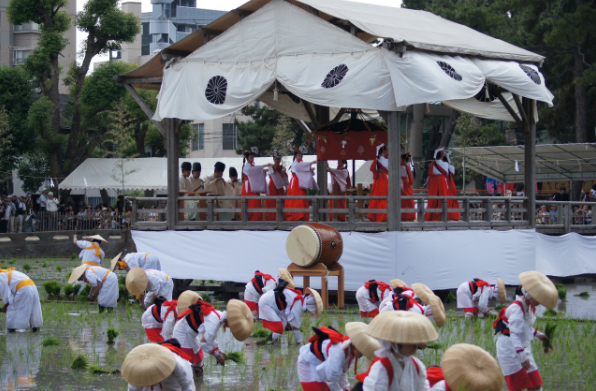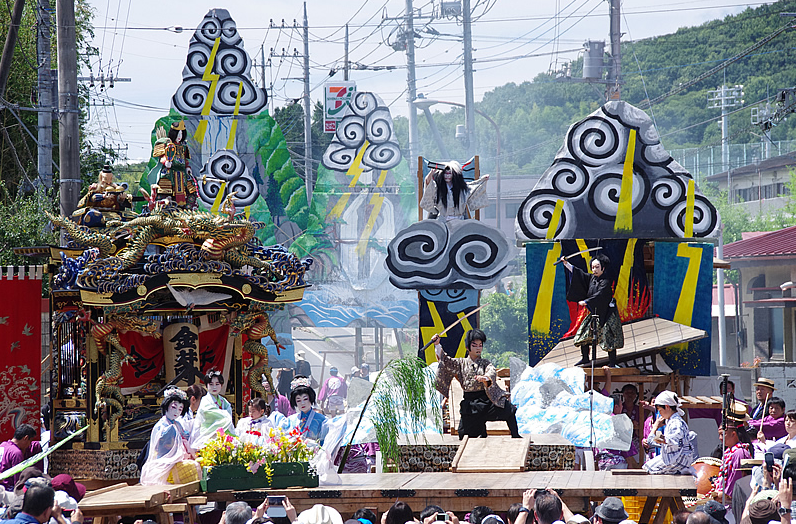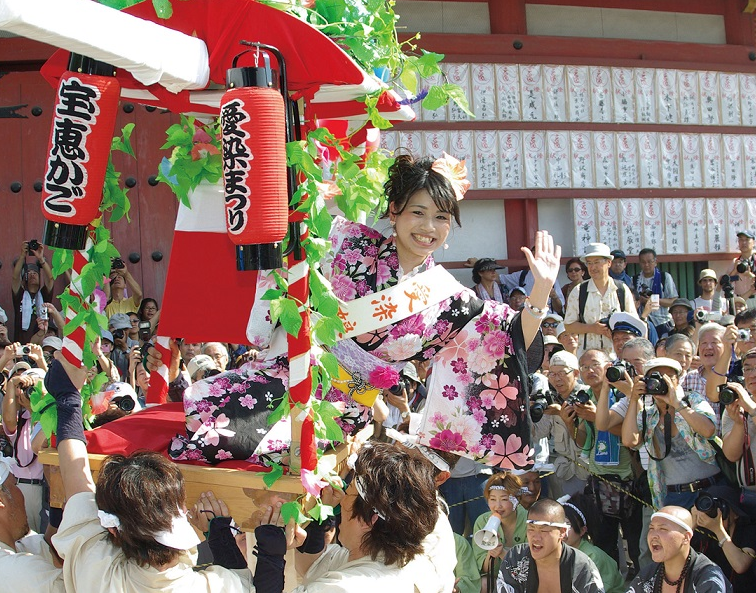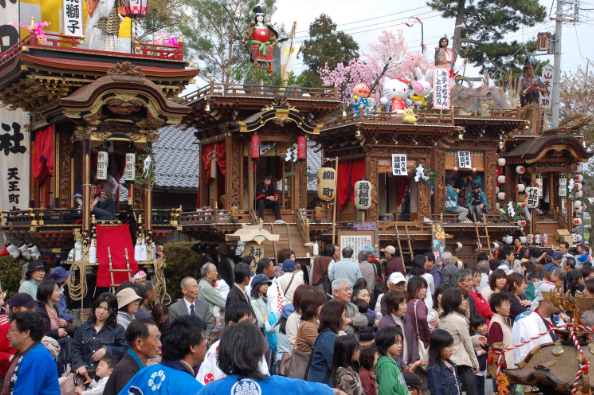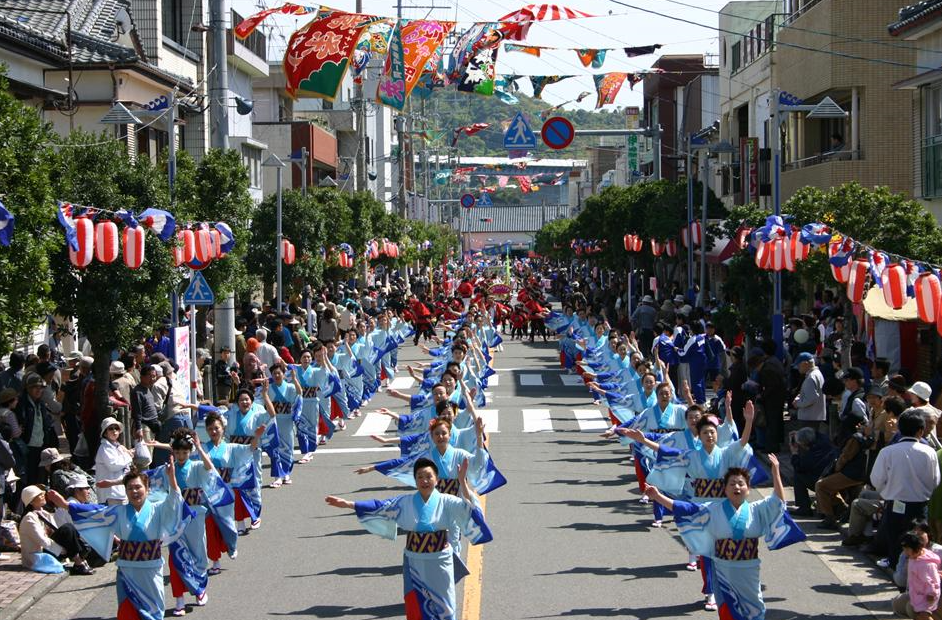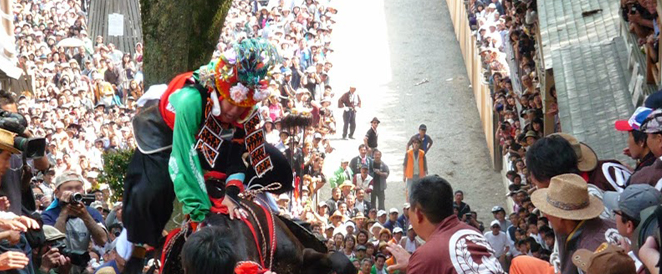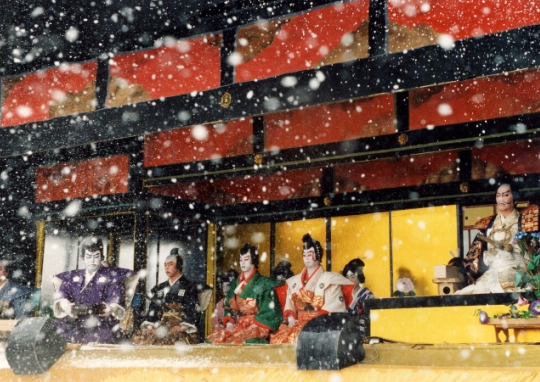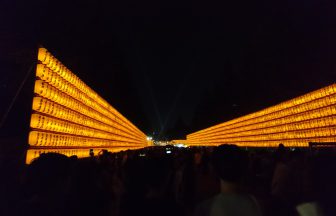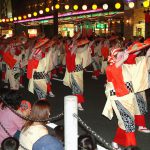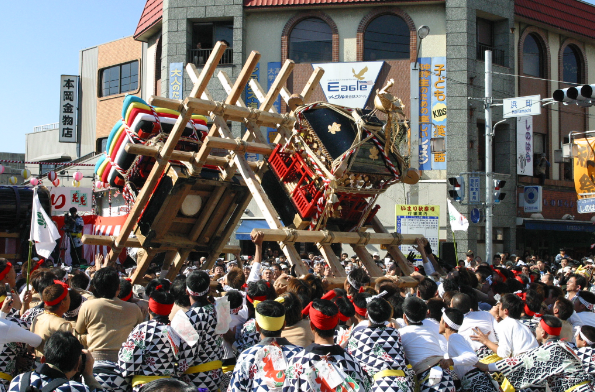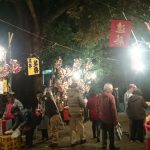Osaka City: The Economic Hub of Kansai Known by All
Osaka, the second-largest city after Tokyo, is a popular travel destination. As the economic center of Kansai, Osaka is bustling with numerous tourist attractions and gourmet spots, attracting a crowd every day.
Despite being the second smallest in area among Japan’s 47 prefectures, about 7% of Japan’s population resides in Osaka. Additionally, 10% of the foreigners living in Japan are based in Osaka.
Osaka City actively engages in international exchange with many cities worldwide, and it is expected to continue developing as an international city in the context of advancing globalization.
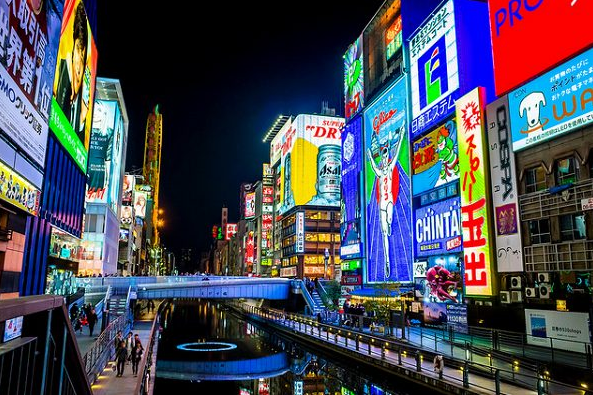
Source: Gadget Tsushin
Let’s Witness the Dignified Otaue Shinji!
Location: Sumiyoshi Taisha
Date: Annually on June 14
Access: 3-minute walk from Nankai Main Line “Sumiyoshi Taisha Station”
Approximately 10 minutes from Tamade IC
URL: http://www.sumiyoshitaisha.net/calender/otaue.html (Official Sumiyoshi Taisha Website)
The Otaue Shinji held at Sumiyoshi Taisha is one of Japan’s three major rice-planting festivals and is designated as an Important Intangible Folk Cultural Property. While rice-planting ceremonies are held across Japan, Sumiyoshi Taisha’s Otaue Shinji is renowned for its strict adherence to tradition and its elaborate and colorful execution.
Sumiyoshi Taisha hosts various events throughout the year related to the blessing of bountiful harvests. Among these, the Otaue Shinji is historically significant.
When Did the Otaue Shinji Begin?
Since the beginning of rice cultivation, rice-planting festivals have been held across Japan to worship the god of the fields. The origin of these festivals lies in the tradition of making rice-planting enjoyable by singing rice-planting songs, which eventually combined with rituals to pray for abundant harvests.
According to the shrine’s history, the origin of Sumiyoshi Taisha’s Otaue Shinji dates back approximately 1,760 years, when Empress Jingū established rice fields and invited rice-planting maidens from Nagato Province to plant rice in the shrine’s paddy fields.
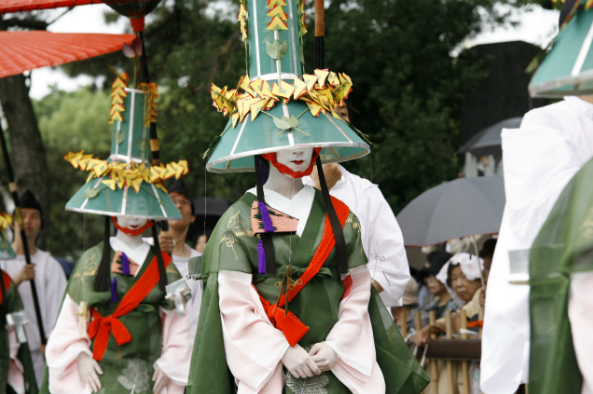
Source: Sumiyoshi Taisha Official Website
The Ceremony is Carried Out Without Omission
On the day of the festival, participants including the rice-planting maidens and children undergo a purification ceremony in the morning. Then, at the First Main Shrine, a solemn ceremony called the “Kikokusai” is held. Following this, the procession, including the rice-planting maidens, children, and dancers, heads to the rice field.
After this, sacred water is poured on the four corners of the rice field for purification. Once this is done, rice-planting techniques are demonstrated, and the rice-planting begins with the rice-planting maidens handing over seedlings to their replacements. Meanwhile, dances, performances, and stick-fighting competitions take place on a central stage.
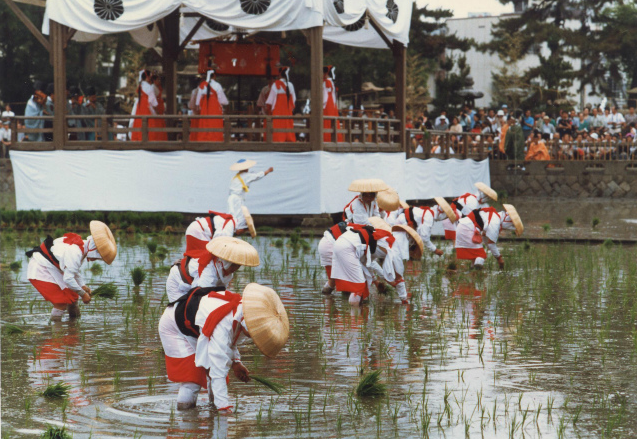
Source: Sumiyoshi Taisha Official Website
A Sacred and Dignified Ritual
This is a holy and traditional event that prays for a bountiful harvest. It is also a historically significant ceremony. While it may seem solemn, the event also has a festive atmosphere, with various performances and dances that delight the spectators. Among these, the Sumiyoshi dance is particularly famous. Be sure to visit and experience it.
Additionally, in reference to the ancient tradition of offering cotton from Nagato Province, you will see artificial cotton flowers throughout the Otaue Shinji. It is said that receiving one of these flowers acts as a charm against evil.
Japan’s Three Major Rice-Planting Festivals
Mie Prefecture: Ise Grand Shrine’s Otaue Festival
Chiba Prefecture: Katori Shrine’s Otaue Festival
Featured Image: Courtesy of Sumiyoshi Taisha Official Website
(Editor: 千八乃)


